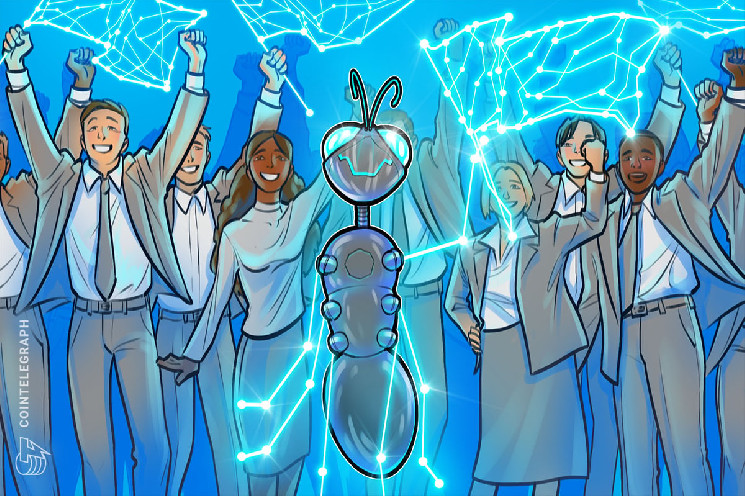Blockchain
Decentralization by way of blockchain expertise has given rise to a number of functions equivalent to cryptocurrency, nonfungible tokens (NFTs), decentralized autonomous organizations (DAOs), decentralized finance (DeFi), and plenty of extra use instances. Nevertheless, the way forward for decentralization could very effectively prolong past blockchain expertise.
Nillion, an web infrastructure platform based mostly on cryptography, has developed a expertise known as Nil Message Compute (NMC), which adjustments how information is saved, processed and decentralized. This new expertise might have essential implications for a way corporations and customers pursue decentralization as an ethos.
When requested how decentralization with out blockchains was potential, the CEO of Nillion, Alex Web page, defined how NMC based-technology takes arbitrary information, transforms and fragments it, after which distributes the ensuing particles throughout a community of nodes.
The nodes can retailer the particles or run computations with the fragments of knowledge with out sending messages between themselves, and return the outcomes to the specified end-point for reconstruction (with out counting on trusted {hardware}), Web page defined in a written response to Cointelegraph. All through the entire course of, nodes are blind to no matter they’re processing, but are capable of run computations at speeds that in lots of instances are considerably quicker than its predecessor expertise, [multi-party computation, or MPC].
He additional defined the distinction between his platform’s NPC expertise and its predecessor, MPC:
Conventional MPC techniques usually require messaging between the nodes, which dramatically slows down computation speeds. NMC has eliminated this throttle permitting for scalable quick computation. The result’s a decentralized, non-blockchain community of nodes which may run safe, non-public computations extraordinarily effectively that opens up new, non-blockchain use instances.
Talking on the way forward for decentralization, Web page shared that decentralization will probably be a elementary a part of the long run digital world as a result of humanity has reached some extent the place information, and notably the management of knowledge, has turn out to be a big a part of our lives:
“The way forward for decentralization will proceed to broaden by way of adoption of applied sciences that carry new utility and performance to blockchain – for instance by way of zero data / succinctness proofs, threshold commitments, and now NMC – to broaden the capabilities past simply recording transactions on a public ledger.”
The CEO additionally emphasised that “decentralization is a spectrum with a number of axes,” including; “Decentralization will embrace blockchain as a foundational component, however different applied sciences will broaden the potential in new ways in which blockchain was by no means designed to do.
In relation to the benefits and advantages of decentralization with out utilizing blockchain expertise, Dr. Miguel de Vega, the chief scientist at Nillion, spoke about how NMC expertise doesn’t should be synchronized with the manufacturing of blocks, or depend upon the completion of a computation for inclusion right into a block, for consensus to happen, as is the case with conventional blockchain.
“As a substitute, it could run proper when it is wanted, offering a greater consumer expertise. Additionally, there is no such thing as a restrict to the dimensions of a computation as a result of they don’t want to suit right into a block.
Though it’s troublesome to foretell how decentralized applied sciences will evolve given the myriad competing platforms, regulatory constraints and adoption bottlenecks impacting their use, decentralization as an ethos is gaining traction throughout mainstream discourse. Elon Musk’s acquisition of Twitter has as soon as once more highlighted the constraints of centralized platforms and sparked a debate about decentralized social media alternate options.
At present, customers have embraced decentralization as a option to enhance transparency, cut back reliance on central authorities, and enhance management over private information and property. These applied sciences, or at the least the promise of decentralization, have been a significant driving pressure behind the expansion of cryptocurrencies.



